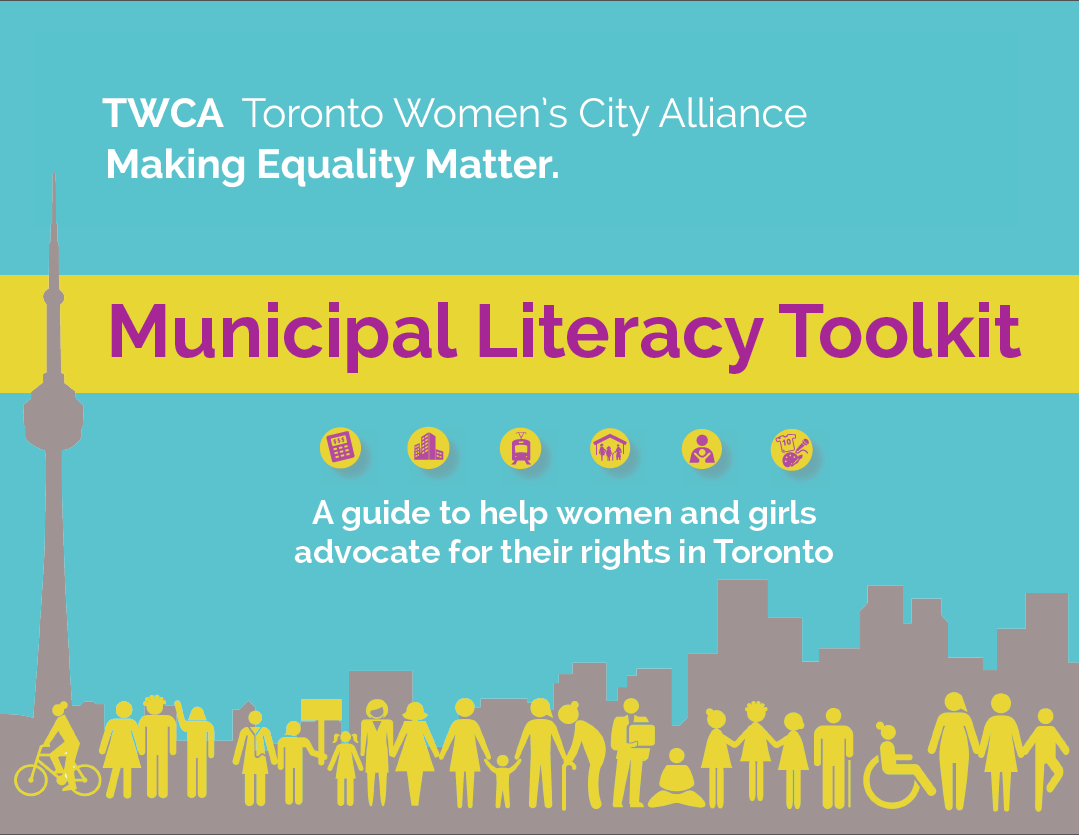Earlier on this month, the City of Toronto release the 2013 Street Needs Assessment:
The city’s homeless are among the most marginalized and disenfranchised residents of Toronto. They struggle with harsh and overcrowded conditions in our shelters that force them to battle the unforgiving territory of Toronto’s streets on a daily basis. The city must continue to track and research the makeup of Toronto’s homeless people so that we can see where services need to be changed and improved to better serve this population in extreme need. For example, there was no analysis done on homelessness and people with mobility needs. Women living with disabilities (both physical and non-visible) need to be included in this assessment to better understand the needs of Toronto’s homeless population. Toronto Women’s City Alliance strongly advocates collecting and disseminating disaggregated data. Without this information, we cannot advocate for appropriate services and the city cannot plan appropriate services.
This year’s Street Needs assessment clearly demonstrates that our homeless population is not decreasing and the reasons are self-evident. With over 80,000 people waiting for social housing, we know that the affordable housing shortage in the City is at a crisis point. It is serious cause for concern that Aboriginal, First Nations, Seniors and LGTBQ Youth are over-represented in our homeless population. We also know that women, as the majority users of social housing, bear the brunt of this crisis.
The Street Needs Assessment shows a steady increase of 7% over the past 7 years in women’s homelessness. It is likely that this number does not show the full picture. Researchers who study women’s homelessness have shown that women’s homelessness is often hidden. Women experience homelessness differently than men do and for reasons often related to systemic gender discrimation and violence against women. Furthermore, women often live in precarious housing situations, like couch surfing or staying in unhealthy relationships to avoid homelessness.
According to Carleton University researcher, Fran Klodawski, “Women who are homeless often face different challenges than other groups of homeless people. Specifically, homeless women, whether alone or accompanied by their children, experience high rates of physical illness and victimization, (Buckner, Bassuk, & Zima, 1993; Fisher, Hovell, Hofstetter, & Hough, 1995) and many have histories of family disruption and violence in childhood (Farrell, Aubry, Klodawsky, Jewett, & Pettey, 2000; Shinn, Knickman, & Weitzman, 1991; Shinn et al., 1998). Homeless women report higher levels of psychological distress and mental health problems than homeless men (Roll, Toro, & Ortola, 1999). Women who are unaccompanied by children are more likely than women with dependent children to report substance abuse difficulties (Farrell, Aubry, Klodawsky, Jewett, & Pettey, 2000; Roll et al.; Zlotnick, Robertson, & Lahiff, 1999).”
The Street Needs Assessment also shows a significant increase in the use of Violence Against Women Shelters in Toronto, pointing to the sad fact that domestic violence is still a very real issue facing women in Toronto.
The Toronto Women’s City Alliance requests that Shelter Support & Housing Administration staff consider how they might better address the needs of homeless women in programming and policies, including:
– Affordable Housing
– Children’s Services
– Community Recreation
– Shelter, Support and Housing Administration
– Social Development, Finance and Administration (excluding Youth Employment).





